Transportation is often a hurdle individuals face that negatively impact their healthcare. A partnership with Wheels4Hope allows qualifying patients to receive a vehicle.
Providing comprehensive primary care to working uninsured adults is the core of what we do at Alliance Medical Ministry.
However, we know that providing medical care and medication is not enough. A deep connection exists between physical heath and mental health, and between social issues and health outcomes.
Alliance has a strong history of addressing mental health and social barriers.
Over the years, Alliance has built a robust Pastoral Care and Counseling Program, providing prayer, psychotherapy, marriage and family therapy, and counseling for individuals and families. As the program grew, we began connecting patients to community resources for issues like substance abuse, addiction, and intimate partner violence.
While addressing immediate health concerns is paramount to improving health outcomes, Alliance places an emphasis on prevention and healthy behaviors. In 2009 and 2010, we conducted patient surveys to identify patient needs and concerns, and heard loud and clear that patients wanted access to fresh, healthy food, and educational opportunities that would lead to improved eating and lifestyles.
With the support of Inter-Faith Food Shuttle, we built our Community Garden in 2010, and began addressing food insecurity by offering fresh produce to patients in the clinic. Over time, we have developed a thriving wellness program, engaging patients and their families in on-site cooking and nutrition education, gardening, and exercise opportunities to prevent and manage chronic illnesses. Our garden now grows more than 2,000 pounds of produce for patients.
We are strengthening our partnership with southeast Raleigh non-profit Passage Home, also working alongside Fertile Ground Food Cooperative, and Wake County Department of Health & Human Services to address race fairness around our shared work with food insecurity, healthcare and workforce development.
Alliance patient and StepUp Ministry graduate James Ivey discusses how our partnership changed his life.
Economic stability has been identified by Alliance patients as one of their biggest concerns and greatest cause of stress. Although patients are required to be working or living in a working household to be eligible for care at Alliance, they struggle to make ends meet. Many patients work in part-time, seasonal or contract jobs and do not have steady, consistent income.
Alliance has partnered with StepUp Ministry for many years, working together to cross refer patients and clients to each other's programming.
Building upon this partnership, we helped initiate The Family Table, a collaborative funded by United Way of the Greater Triangle. Together with Catholic Parrish Outreach, StepUp Ministry, Dress for Success, NC Works, Boys & Girls Club, and Childcare Resource and Referral Services, we have hired a Care Coordinator to identify and case manage families, place them in job training programs and assist with job placement, navigating food access, and enrolling in healthcare at AMM. Once Family Table clients become employed, they have access to childcare resources and after-school care.
Today, the practice of addressing social issues is called "working upstream" to address "Social Determinants of Health" (SDOH). SDOH include non-medical barriers to health, including food insecurity, housing, transportation, employment, childcare and intimate partner violence.
Clinical care contributes to only 20% of overall health outcomes; the remaining 80% is impacted by social and economic factors, health behaviors, and your physical environment. The fewer resources and social support an individual has, the greater the barriers to optimal health outcomes.
Across the board nationally, statewide, and locally, healthcare organizations are embracing opportunities to address SDOH. Locally, Alliance serves on the Steering Committee of the Wake County Medical Society Community Health Foundation (WCMSCHF), which seeks to create a formalized approach to addressing SDOH by linking clinical and social services organizations.
Hasana Wooding, MPH Candidate, and Meaghan Henry, LCSW candidate, have worked this summer to draft the social screening questionnaire and help implement roll-out.
A priority of the WCMSCHF is to roll-out a social needs questionnaire in the medical setting, and implement a purposeful referral process to link clinical and social services.
A report prepared for John Rex Endowment by the North Carolina Institute for Public Health echoes this need: "[Key informants] would like to contribute data into centralized, well-coordinated systems that could benefit others outside their organizations. . . . High quality, coordinated referral systems that would allow them to track the people they serve as they access other services."
Likewise, the John Rex Endowment report concluded that "key informants need access to up-to-date, relevant and reliable data that could better inform their work." The Wake Network of Care is a hub for social resources, and Alliance has expanded social resource information on our website for easy review by patients.
This summer, Alliance will roll out a social screening to new patients through our Patient Services Team. At enrollment, questions around transportation, food access, housing, employment, and childcare will be posed to new patients, with resources identified for them immediately, referrals made, a plan built, and a note made in their medical record.
How Alliance first defined "comprehensive care" may have evolved over 15 years, but the way we intentionally embrace addressing the needs of each individual patient has remained the same.




